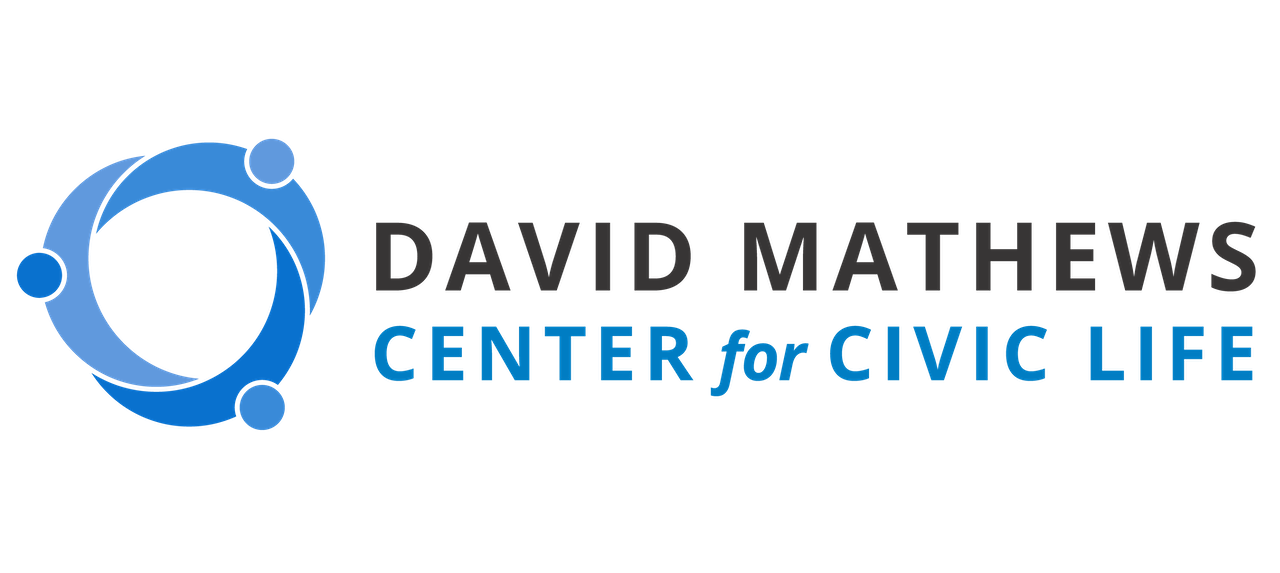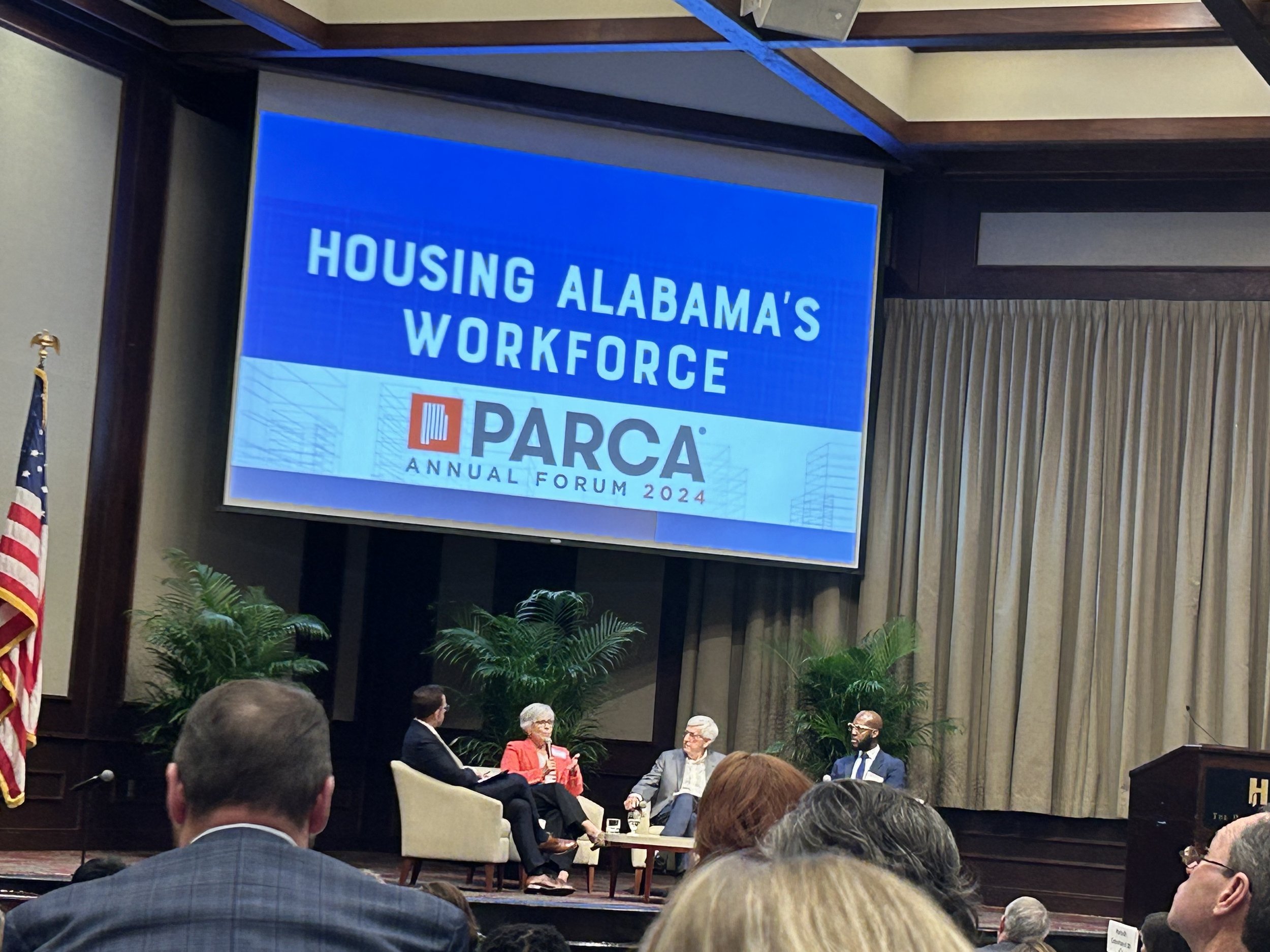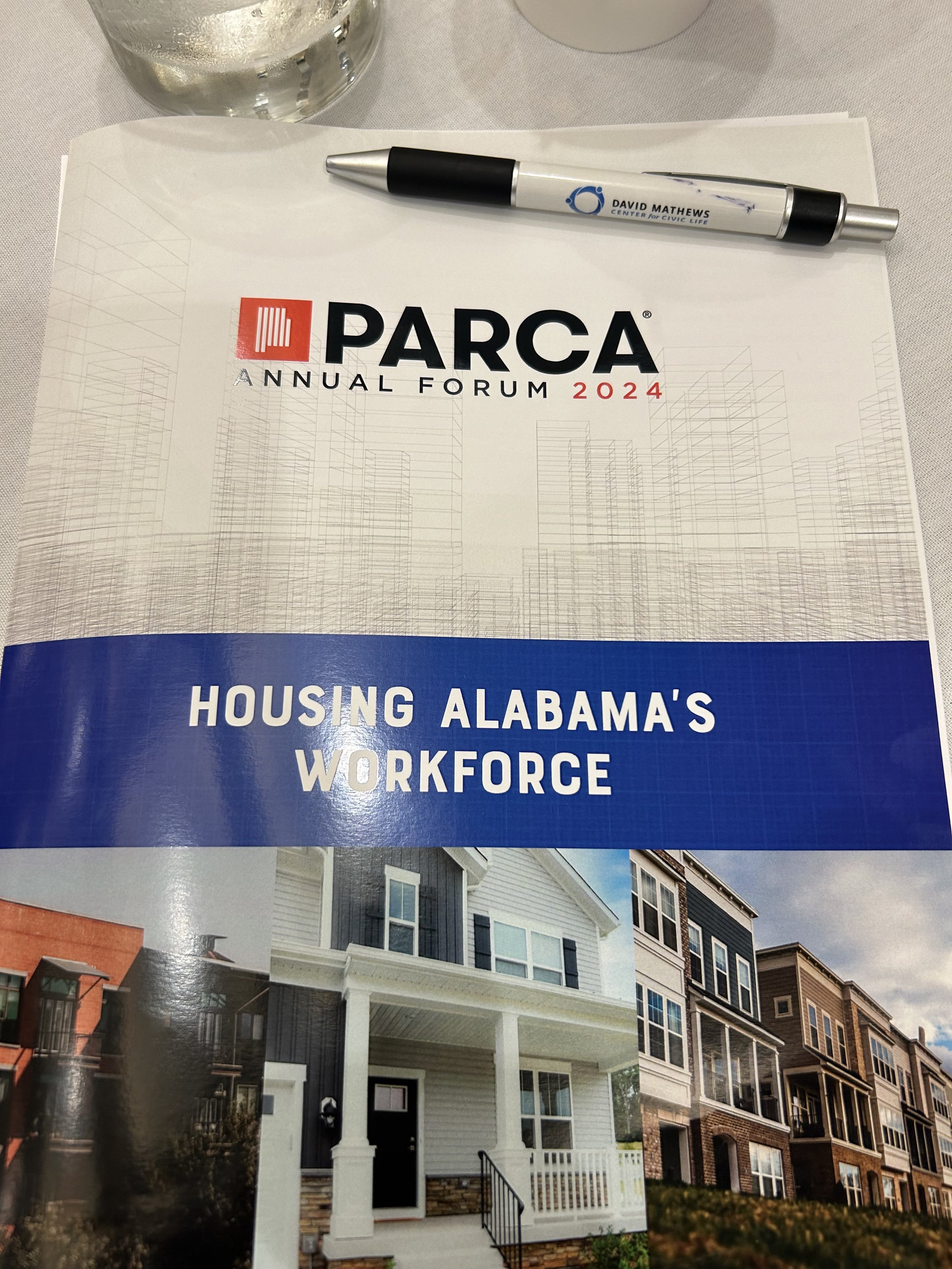Reflections on the 2024 PARCA Annual Forum
On March 8, 2024, the Public Affairs Research Council of Alabama (PARCA) hosted its 2024 Annual Forum, which was followed by the Governor Albert Brewer Legacy Lunch. Overall, the PARCA forum, held in the Harbert Center in Birmingham, was an outstanding program that was extremely informative. This year's topic was "Housing Alabama's Workforce". The program began with presentations followed by a forum and concluded with the Governor’s Legacy Lunch.
Tyrone Fenderson, PARCA Board President, opened the program at 9:00 a.m. with a welcome and introductions. In his welcome speech, Fenderson underlined the importance of organizations like PARCA, and he went on to describe how their organization provides trustworthy, nonpartisan information. Fenderson explained that the purpose of this forum was to address "workforce housing," also known as moderate/middle-income housing. He went on to emphasize that the forum was not a listening session, but rather one to encourage thought, saying, "Our challenge for you today is to hear, engage, and reflect."
Ryan Hankins, PARCA's Executive Director, followed Tyrone Fenderson. Ryan began with a presentation titled Why Housing? that explained why PARCA had chosen Workforce Housing as the topic for their annual forum. According to Hankins, even if only a small portion of housing is impacted, the entire system is affected. During his presentation, he stated that 47% of renters spend more than 30% of their income on rent. Hankin's presentation also highlighted which types of employment fit into the middle-income bracket, such as teachers, police officers, firefighters, postal workers, and so on. Hankins did an excellent job of describing the purpose of this problem and why PARCA's research and the data we were about to receive were important.
Lisa McCarroll from Navigate Housing Partners and Amanda Loper from David Baker Architects delivered talks after Hankins. Lisa McCaroll, Navigate's CEO, underlined the importance of affordable housing during her presentation titled What is Workforce Housing?, saying, "Shout out to all the nonprofits, we are all working together." She asserted that Alabama must be able to rapidly deploy high-quality, affordable homes. She continued by emphasizing the importance of developing affordable housing for the workers that not only addresses the problem but also provides them something to "be proud of." She concluded by asking how can this be standardized in a way that is affordable for everyone.
Amanda Loper, Principal at David Baker Architects gave a presentation on Innovations Around the Country. She showcased examples of affordable housing techniques architects had designed and implemented. She emphasized the fact that to have affordability the design must be very rigorous. Amanda stated that the entire process should be more than just housing, “People need more when we are thinking about housing.” She then gave examples of some of the additions that had been made to affordable housing units such as early Learning classrooms, art spaces, and gathering places. This point ties in with Lisa McCarroll’s point who also emphasized that those in the workforce deserved housing that they can “be proud of.” Amanda Loper went on to also highlight the Auburn University Rural Studio which, in her terms, is a student-led iterative research and front porch initiative public-facing outreach program. In the studio, they also work to get affordability through design or bring down the cost through the design process. Loper’s presentation gave insight into the importance of the design process when tackling the affordable housing problem.
After a brief break following the presentations, the forum began at 10:20 a.m. Ryan Hankins, Executive Director of PARCA, facilitated the forum titled "Opportunities in Alabama," which featured Terry Harbin of Affordable Homes Gulf Coast, LLC, Mary Ellen Judah, Executive Director of Neighborhood Concepts, Inc., and Cory Stallworth, Senior Deputy Director of Community Development for the City of Birmingham. The event began by examining some of the issues Alabamians face when seeking opportunities in Alabama, such as affordable housing or job opportunities.
"Trickle-down economics takes a long time to happen and folks are getting displaced out of their homes while this is happening," added Harbin. Harbin has 40 years of experience in sales, marketing, technology, and bank management. His company, Affordable Homes Gulf Coast, LLC, builds housing to fulfill the growing need in Mobile, AL.
The discussion explored how problems related to job opportunities, community services, and public schools are all interconnected. Panelists discussed how if certain types of services are not available in communities (for example, child care, grocery stores, hospitals, and public transportation), the workforce will be impacted. The economics then ultimately affect the federal funding of public schools. They raised the point that public schools need to have families in classrooms to receive funding and if people can not live in the city due to lack of affordable housing, it will consequently lower the funding for the schools in the area.
Mary Ellen Judah stressed the challenge of establishing affordable housing in communities: "It is not for the faint of heart to develop affordable housing." She spoke from personal experience. Neighborhood Concepts, Inc. is a Huntsville-based non-profit dedicated to strengthening neighborhoods by promoting equitable housing and economic opportunities. Mary also stressed the significance of state support, saying, "We need to look, as a state, at how we can supply resources rather than relying on federal funding."
To conclude the forum, Hankins asked the panelists, "What do you see around the country that you would like to see implemented?"
Terry Harbin opened up, stating that he would want to see opportunities to learn from other states, greater flexibility, state and local funding, and local leadership. Cory Stallworth wants to increase public involvement and partnerships, noting that there is opportunity for more partners. "How can we bring those training opportunities to our residents?" He suggested that the city of Birmingham collaborate more with UAB to design housing, as well as explore other creative possibilities for partnership. Mary Judah concluded by underlining the importance of equitable housing: ".. everybody gets housing that fits." She feels that we must all work together to recognize our strengths to confront the issue.
James Stockard of Harvard University's Graduate School of Design was the final speaker at the PARCA Annual Forum program. Stockard delivered an extremely insightful talk on the four barriers to creating affordable housing.
The day concluded with the Governor Albert Brewer Legacy Lunch, which took place at noon. Following Tyrone Fenderson's welcome and Ryan Hankins' Year in Review presentation, Honorable Governor Kay Ivey delivered the keynote address. Kay Ivey gave a very enthusiastic address on the state of Alabama, opening with, "Despite the economic challenges facing our country, Alabama is holding strong" She went on to say, "We've got the momentum, now let us look ahead and prepare for the economy of the future." Kay Ivey praised PARCA for their work and concluded with motivation, "The people of Alabama deserve the best; this is our opportunity."
The 2024 Annual PARCA Forum was a very successful and educational event. For those who were unable to attend, we strongly urge going next year, the topic will be on Mental Health.



